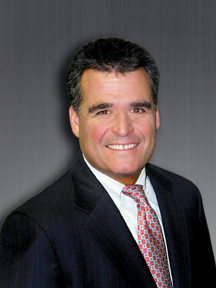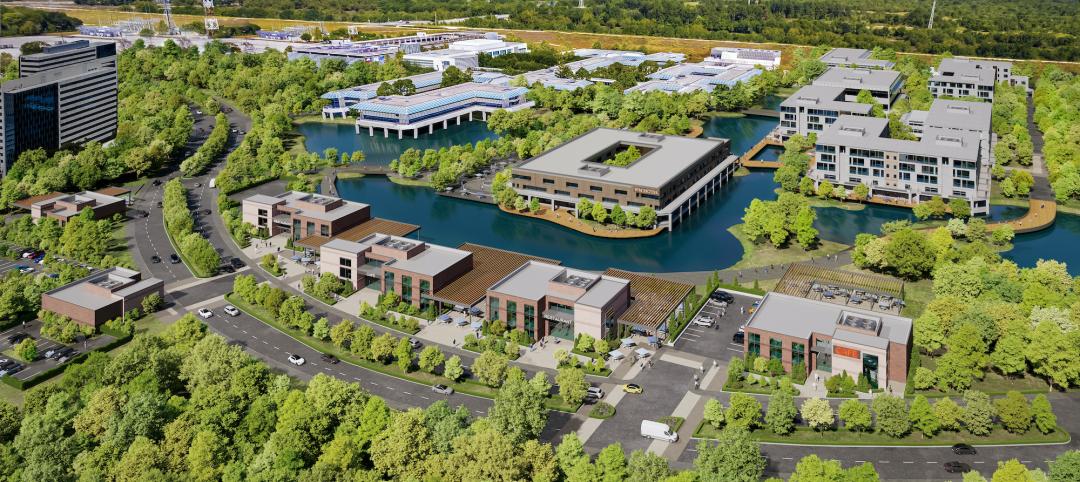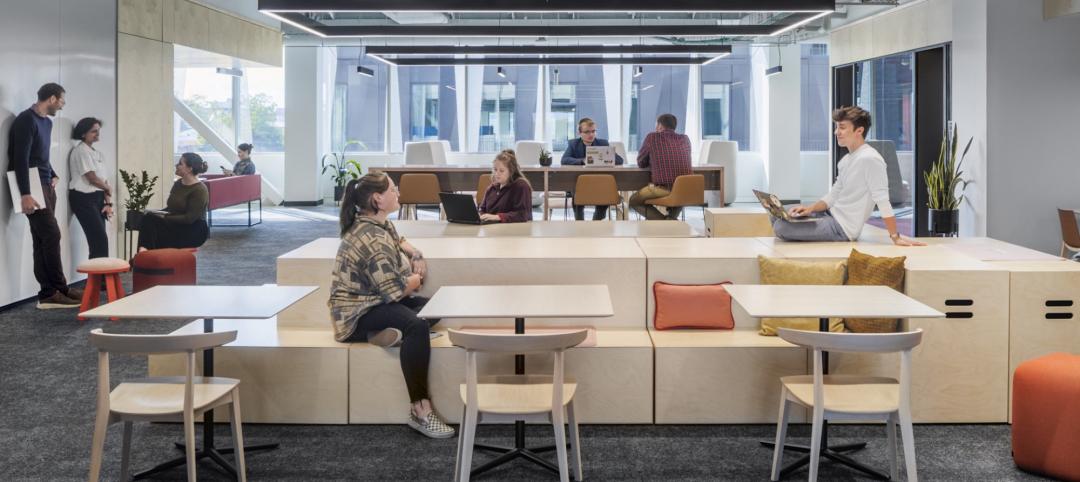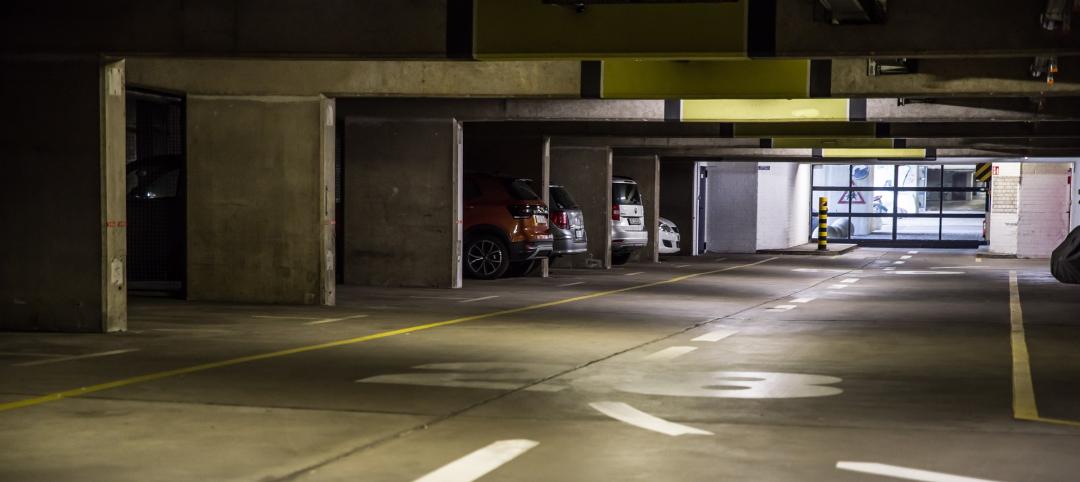BD+C: What are the chief initiatives for BOMA in the coming year?
Boyd R. Zoccola: Our theme for the year is achieving high performance through innovation. One area is recruiting young professionals into real estate management. We’ve got a lot of young people in university real estate programs that want to be owners and entrepreneurs but may not be aware of careers in the day-to-day operations of property management—asset management, interacting with tenants, setting budgets, etc.
Our industry has an aging management group, and we need to reach out to the young people who will be carrying the water in our business through 2025. Our Thought Leaders Symposium at Georgetown University November 10 (www.boma.org/about/bomafoundation) is designed to make them aware of property management as a career.
Another area is benchmarking tools. We’re coming up on the end of the BOMA 7-Point Challenge, to make buildings 30% more efficient than the mid-level (50) building in Energy Star. It’s been a great success, with more than 3,000 buildings and 800 million square feet sharing their data with BOMA. Members like CBRE and USAA are already well beyond the 7-Point Challenge. BOMAStars is a tool to share the data, which will allow us to talk objectively to legislators or mayors about the positive strides we’re making.
BD+C: What national issues will BOMA be pursuing in the coming year?
BRZ: From a tax standpoint, the 15-year timeline for depreciating leasehold improvements expires at the end of the year; left unchanged, it reverts to 39 years. We think 15 years is a more realistic picture of the marketplace, and we want it to be made permanent.
We’re also concerned about an EPA initiative to require the removal of lead-based paint in office buildings. We don’t think there’s been enough study to justify that. The EPA is also considering treating stormwater runoff from office sites. We don’t think buildings are point sources under the Clean Water Act.
BD+C: What are the greatest concerns of BOMA members at this time?
BRZ: The economy is number one, of course. But, based on our research, we now know that work/life balance is number two. We didn’t even hear about that four years ago. All our members are being asked to do more with less, but there’s only so much time in the day, so how much time can they give to BOMA? That’s a concern for us as an organization.
Tenant retention is a big issue for members. It’s much easier to keep a tenant than to replace one. Having vacancies is the easiest way to decrease asset value. Our members are making improvements that tenants can see on a daily basis—common areas, restrooms, corridor finishes—to make sure their buildings are crisp and clean and don’t feel old. They’re making improvements with a two-year payback, but it’s the five- and 10-year paybacks where the overall cost just doesn’t make a business case, at least not without incentive dollars.
BD+C: How is the BOMA 360 program doing?
BRZ: BOMA 360 is about holistic best practices, how well you run your building with the systems that you have—standard operating procedures, emergency preparedness, Energy Star benchmarking, data sharing, etc. It’s just two years old, and we already have 300 certified buildings. Surveys are showing that 360 buildings are getting higher marks in tenant satisfaction than other buildings. When you look at the other designation programs out in the marketplace, we’ve exceeded all but one, LEED.
BD+C: When is the U.S. office market going to turn around?
BRZ: It’s kind of the haves and the have-nots. D.C., New York, San Francisco, Boston, they’re all doing very, very well. There are some other pockets, but for most BOMA members, our recovery is directly tied to jobs, and until we can reduce unemployment, we’re not going to see a turnaround in the office market.
Medical continues to be a strong sector across the country—MOBs, surgical centers, imaging, oncology, outpatient services. Mixed-use properties are becoming more prevalent, and we think they’re going to flourish.
BD+C: What’s your biggest business-related worry?
BRZ: From our company’s perspective, it’s how best to manage the inflation risk that we perceive as coming in the marketplace. We think it’s going to happen.
The other has to do with staff retention. Over the last three years, we asked people to go without raises and employer contributions to 401(k) plans. I believe that many BOMA members, large and small, are trying to manage their staff retention, to make up for the cuts of the last three years.
BD+C: How can BD+C readers—architects, engineers, and contractors—work more effectively with BOMA members as clients?
BRZ: From a personal perspective, I’m buying those services based on quality of service and ability to deliver on time; price is in third place. It’s all about timing, and you might be one of the three or four firms that I throw into an RFP process. I don’t shotgun out an RFP to 20 firms.
Now’s the time to market within your niche. Don’t try to be everything to everyone. We hear from a lot of firms who want to do medical buildings but have no experience, and they wonder why we don’t pick them.
Make sure that you’re marketing to multiple people within a company. If that one person at the top goes, you’re vulnerable. Make sure that if you have a transition in a client organization, you can survive a CEO change.
Finally, it’s the last 2% of every job that’s the most difficult, and that’s the time to finish strong. Don’t give your client any reason to make a change. BD+C
Related Stories
Student Housing | Dec 7, 2022
Cornell University builds massive student housing complex to accommodate planned enrollment growth
In Ithaca, N.Y., Cornell University has completed its North Campus Residential Expansion (NCRE) project. Designed by ikon.5 architects, the 776,000-sf project provides 1,200 beds for first-year students and 800 beds for sophomore students. The NCRE project aimed to accommodate the university’s planned growth in student enrollment while meeting its green infrastructure standards. Cornell University plans to achieve carbon neutrality by 2035.
Office Buildings | Dec 6, 2022
‘Chicago’s healthiest office tower’ achieves LEED Gold, WELL Platinum, and WiredScore Platinum
Goettsch Partners (GP) recently completed 320 South Canal, billed as “Chicago’s healthiest office tower,” according to the architecture firm. Located across the street from Chicago Union Station and close to major expressways, the 51-story tower totals 1,740,000 sf. It includes a conference center, fitness center, restaurant, to-go market, branch bank, and a cocktail lounge in an adjacent structure, as well as parking for 324 cars/electric vehicles and 114 bicycles.
Multifamily Housing | Dec 6, 2022
Austin's new 80-story multifamily tower will be the tallest building in Texas
Recently announced plans for Wilson Tower, a high-rise multifamily building in downtown Austin, Texas, indicate that it will be the state’s tallest building when completed. The 80-floor structure will rise 1,035 feet in height at 410 East 5th Street, close to the 6th Street Entertainment District, Austin Convention Center, and a new downtown light rail station.
Geothermal Technology | Dec 6, 2022
Google spinoff uses pay-as-you-go business model to spur growth in geothermal systems
Dandelion Energy is turning to a pay-as-you-go plan similar to rooftop solar panel leasing to help property owners afford geothermal heat pump systems.
Contractors | Dec 6, 2022
Slow payments cost the construction industry $208 billion in 2022
The cost of floating payments for wages and invoices represents $208 billion in excess cost to the construction industry, a 53% increase from 2021, according to a survey by Rabbet, a provider of construction finance software.
Mixed-Use | Dec 6, 2022
Houston developer plans to convert Kevin Roche-designed ConocoPhillips HQ to mixed-use destination
Houston-based Midway, a real estate investment, development, and management firm, plans to redevelop the former ConocoPhillips corporate headquarters site into a mixed-use destination called Watermark District at Woodcreek.
Office Buildings | Dec 5, 2022
How to foster collaboration and inspiration for a workplace culture that does not exist (yet)
A building might not be able to “hack” innovation, but it can create the right conditions to foster connection and innovation, write GBBN's Chad Burke and Zachary Zettler.
University Buildings | Dec 5, 2022
Florida Polytechnic University unveils its Applied Research Center, furthering its mission to provide STEM education
In Lakeland, Fla., located between Orlando and Tampa, Florida Polytechnic University unveiled its new Applied Research Center (ARC). Designed by HOK and built by Skanska, the 90,000-sf academic building houses research and teaching laboratories, student design spaces, conference rooms, and faculty offices—furthering the school’s science, technology, engineering, and mathematics (STEM) mission.
Mass Timber | Dec 1, 2022
Cross laminated timber market forecast to more than triple by end of decade
Cross laminated timber (CLT) is gaining acceptance as an eco-friendly building material, a trend that will propel its growth through the end of the 2020s. The CLT market is projected to more than triple from $1.11 billion in 2021 to $3.72 billion by 2030, according to a report from Polaris Market Research.
Giants 400 | Dec 1, 2022
Top 50 Parking Structure Architecture + AE Firms for 2022
Choate Parking Consultants, Gensler, Clark Nexsen, and Solomon Cordwell Buenz top the ranking of the nation's largest parking structure architecture and architecture/engineering (AE) firms for 2022, as reported in Building Design+Construction's 2022 Giants 400 Report.
















